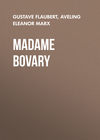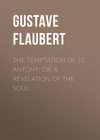Loe raamatut: «Sentimental Education; Or, The History of a Young Man. Volume 1», lehekülg 11
The Maréchale, fresh as if she had come out of a bath, had rosy checks and sparkling eyes. She flung her wig some distance away, and her hair fell around her like a fleece, allowing none of her uniform to be seen except her breeches, the effect thus produced being at the same time comical and pretty.
The Sphinx, whose teeth chattered as if she had the ague, wanted a shawl.
Rosanette rushed up to her own room to look for one, and, as the other came after her, she quickly shut the door in her face.
The Turk remarked, in a loud tone, that M. Oudry had not been seen going out. Nobody noticed the maliciousness of this observation, so worn out were they all.
Then, while waiting for vehicles, they managed to get on their broad-brimmed hats and cloaks. It struck seven. The angel was still in the dining-room, seated at the table with a plate of sardines and fruit stewed in melted butter in front of her, and close beside her was the fishwife, smoking cigarettes, while giving her advice as to the right way to live.
At last, the cabs having arrived, the guests took their departure. Hussonnet, who had an engagement as correspondent for the provinces, had to read through fifty-three newspapers before his breakfast. The female savage had a rehearsal at the theatre; Pellerin had to see a model; and the choir-boy had three appointments. But the angel, attacked by the preliminary symptoms of indigestion, was unable to rise. The mediæval baron carried her to the cab.
"Take care of her wings!" cried the 'longshorewoman through the window.
At the top of the stairs, Mademoiselle Vatnaz said to Rosanette:
"Good-bye, darling! That was a very nice evening party of yours."
Then, bending close to her ear: "Take care of him!"
"Till better times come," returned the Maréchale, in drawling tones, as she turned her back.
Arnoux and Frederick returned together, just as they had come. The dealer in faïence looked so gloomy that his companion wished to know if he were ill.
"I? Not at all!"
He bit his moustache, knitted his brows; and Frederick asked him, was it his business that annoyed him.
"By no means!"
Then all of a sudden:
"You know him – Père Oudry – don't you?"
And, with a spiteful expression on his countenance:
"He's rich, the old scoundrel!"
After this, Arnoux spoke about an important piece of ware-making, which had to be finished that day at his works. He wanted to see it; the train was starting in an hour.
"Meantime, I must go and embrace my wife."
"Ha! his wife!" thought Frederick. Then he made his way home to go to bed, with his head aching terribly; and, to appease his thirst, he swallowed a whole carafe of water.
Another thirst had come to him – the thirst for women, for licentious pleasure, and all that Parisian life permitted him to enjoy. He felt somewhat stunned, like a man coming out of a ship, and in the visions that haunted his first sleep, he saw the shoulders of the fishwife, the loins of the 'longshorewoman, the calves of the Polish lady, and the head-dress of the female savage flying past him and coming back again continually. Then, two large black eyes, which had not been at the ball, appeared before him; and, light as butterflies, burning as torches, they came and went, ascended to the cornice and descended to his very mouth.
Frederick made desperate efforts to recognise those eyes, without succeeding in doing so. But already the dream had taken hold of him. It seemed to him that he was yoked beside Arnoux to the pole of a hackney-coach, and that the Maréchale, astride of him, was disembowelling him with her gold spurs.
CHAPTER VIII.
Frederick Entertains
Frederick found a little mansion at the corner of the Rue Rumfort, and he bought it along with the brougham, the horse, the furniture, and two flower-stands which were taken from the Arnoux's house to be placed on each side of his drawing-room door. In the rear of this apartment were a bedroom and a closet. The idea occurred to his mind to put up Deslauriers there. But how could he receive her —her, his future mistress? The presence of a friend would be an obstacle. He knocked down the partition-wall in order to enlarge the drawing-room, and converted the closet into a smoking-room.
He bought the works of the poets whom he loved, books of travel, atlases, and dictionaries, for he had innumerable plans of study. He hurried on the workmen, rushed about to the different shops, and in his impatience to enjoy, carried off everything without even holding out for a bargain beforehand.
From the tradesmen's bills, Frederick ascertained that he would have to expend very soon forty thousand francs, not including the succession duties, which would exceed thirty-seven thousand. As his fortune was in landed property, he wrote to the notary at Havre to sell a portion of it in order to pay off his debts, and to have some money at his disposal. Then, anxious to become acquainted at last with that vague entity, glittering and indefinable, which is known as "society," he sent a note to the Dambreuses to know whether he might be at liberty to call upon them. Madame, in reply, said she would expect a visit from him the following day.
This happened to be their reception-day. Carriages were standing in the courtyard. Two footmen rushed forward under the marquée, and a third at the head of the stairs began walking in front of him.
He was conducted through an anteroom, a second room, and then a drawing-room with high windows and a monumental mantel-shelf supporting a time-piece in the form of a sphere, and two enormous porcelain vases, in each of which bristled, like a golden bush, a cluster of sconces. Pictures in the manner of Espagnolet hung on the walls. The heavy tapestry portières fell majestically, and the armchairs, the brackets, the tables, the entire furniture, which was in the style of the Second Empire, had a certain imposing and diplomatic air.
Frederick smiled with pleasure in spite of himself.
At last he reached an oval apartment wainscoted in cypress-wood, stuffed with dainty furniture, and letting in the light through a single sheet of plate-glass, which looked out on a garden. Madame Dambreuse was seated at the fireside, with a dozen persons gathered round her in a circle. With a polite greeting, she made a sign to him to take a seat, without, however, exhibiting any surprise at not having seen him for so long a time.
Just at the moment when he was entering the room, they had been praising the eloquence of the Abbé Cœur. Then they deplored the immorality of servants, a topic suggested by a theft which a valet-de-chambre had committed, and they began to indulge in tittle-tattle. Old Madame de Sommery had a cold; Mademoiselle de Turvisot had got married; the Montcharrons would not return before the end of January; neither would the Bretancourts, now that people remained in the country till a late period of the year. And the triviality of the conversation was, so to speak, intensified by the luxuriousness of the surroundings; but what they said was less stupid than their way of talking, which was aimless, disconnected, and utterly devoid of animation. And yet there were present men versed in life – an ex-minister, the curé of a large parish, two or three Government officials of high rank. They adhered to the most hackneyed commonplaces. Some of them resembled weary dowagers; others had the appearance of horse-jockeys; and old men accompanied their wives, of whom they were old enough to be the grandfathers.
Madame Dambreuse received all of them graciously. When it was mentioned that anyone was ill, she knitted her brows with a painful expression on her face, and when balls or evening parties were discussed, assumed a joyous air. She would ere long be compelled to deprive herself of these pleasures, for she was going to take away from a boarding-school a niece of her husband, an orphan. The guests extolled her devotedness: this was behaving like a true mother of a family.
Frederick gazed at her attentively. The dull skin of her face looked as if it had been stretched out, and had a bloom in which there was no brilliancy; like that of preserved fruit. But her hair, which was in corkscrew curls, after the English fashion, was finer than silk; her eyes of a sparkling blue; and all her movements were dainty. Seated at the lower end of the apartment, on a small sofa, she kept brushing off the red flock from a Japanese screen, no doubt in order to let her hands be seen to greater advantage – long narrow hands, a little thin, with fingers tilting up at the points. She wore a grey moiré gown with a high-necked body, like a Puritan lady.
Frederick asked her whether she intended to go to La Fortelle this year. Madame Dambreuse was unable to say. He was sure, however, of one thing, that one would be bored to death in Nogent.
Then the visitors thronged in more quickly. There was an incessant rustling of robes on the carpet. Ladies, seated on the edges of chairs, gave vent to little sneering laughs, articulated two or three words, and at the end of five minutes left along with their young daughters. It soon became impossible to follow the conversation, and Frederick withdrew when Madame Dambreuse said to him:
"Every Wednesday, is it not, Monsieur Moreau?" making up for her previous display of indifference by these simple words.
He was satisfied. Nevertheless, he took a deep breath when he got out into the open air; and, needing a less artificial environment, Frederick recalled to mind that he owed the Maréchale a visit.
The door of the anteroom was open. Two Havanese lapdogs rushed forward. A voice exclaimed:
"Delphine! Delphine! Is that you, Felix?"
He stood there without advancing a step. The two little dogs kept yelping continually. At length Rosanette appeared, wrapped up in a sort of dressing-gown of white muslin trimmed with lace, and with her stockingless feet in Turkish slippers.
"Ah! excuse me, Monsieur! I thought it was the hairdresser. One minute; I am coming back!"
And he was left alone in the dining-room. The Venetian blinds were closed. Frederick, as he cast a glance round, was beginning to recall the hubbub of the other night, when he noticed on the table, in the middle of the room, a man's hat, an old felt hat, bruised, greasy, dirty. To whom did this hat belong? Impudently displaying its torn lining, it seemed to say:
"I have the laugh, after all! I am the master!"
The Maréchale suddenly reappeared on the scene. She took up the hat, opened the conservatory, flung it in there, shut the door again (other doors flew open and closed again at the same moment), and, having brought Frederick through the kitchen, she introduced him into her dressing-room.
It could at once be seen that this was the most frequented room in the house, and, so to speak, its true moral centre. The walls, the armchairs, and a big divan with a spring were adorned with a chintz pattern on which was traced a great deal of foliage. On a white marble table stood two large washhand-basins of fine blue earthenware. Crystal shelves, forming a whatnot overhead, were laden with phials, brushes, combs, sticks of cosmetic, and powder-boxes. The fire was reflected in a high cheval-glass. A sheet was hanging outside a bath, and odours of almond-paste and of benzoin were exhaled.
"You'll excuse the disorder. I'm dining in the city this evening."
And as she turned on her heel, she was near crushing one of the little dogs. Frederick declared that they were charming. She lifted up the pair of them, and raising their black snouts up to her face:
"Come! do a laugh – kiss the gentleman!"
A man dressed in a dirty overcoat with a fur collar here entered abruptly.
"Felix, my worthy fellow," said she, "you'll have that business of yours disposed of next Sunday without fail."
The man proceeded to dress her hair. Frederick told her he had heard news of her friends, Madame de Rochegune, Madame de Saint-Florentin, and Madame Lombard, every woman being noble, as if it were at the mansion of the Dambreuses. Then he talked about the theatres. An extraordinary performance was to be given that evening at the Ambigu.
"Shall you go?"
"Faith, no! I'm staying at home."
Delphine appeared. Her mistress gave her a scolding for having gone out without permission.
The other vowed that she was just "returning from market."
"Well, bring me your book. You have no objection, isn't that so?"
And, reading the pass-book in a low tone, Rosanette made remarks on every item. The different sums were not added up correctly.
"Hand me over four sous!"
Delphine handed the amount over to her, and, when she had sent the maid away:
"Ah! Holy Virgin! could I be more unfortunate than I am with these creatures?"
Frederick was shocked at this complaint about servants. It recalled the others too vividly to his mind, and established between the two houses a kind of vexatious equality.
When Delphine came back again, she drew close to the Maréchale's side in order to whisper something in her ear.
"Ah, no! I don't want her!"
Delphine presented herself once more.
"Madame, she insists."
"Ah, what a plague! Throw her out!"
At the same moment, an old lady, dressed in black, pushed forward the door. Frederick heard nothing, saw nothing. Rosanette rushed into her apartment to meet her.
When she reappeared her cheeks were flushed, and she sat down in one of the armchairs without saying a word. A tear fell down her face; then, turning towards the young man, softly:
"What is your Christian name?"
"Frederick."
"Ha! Federico! It doesn't annoy you when I address you in that way?"
And she gazed at him in a coaxing sort of way that was almost amorous.
All of a sudden she uttered an exclamation of delight at the sight of Mademoiselle Vatnaz.
The lady-artist had no time to lose before presiding at her table d'hôte at six o'clock sharp; and she was panting for breath, being completely exhausted. She first took out of her pocket a gold chain in a paper, then various objects that she had bought.
"You should know that there are in the Rue Joubert splendid Suède gloves at thirty-six sous. Your dyer wants eight days more. As for the guipure, I told you that they would dye it again. Bugneaux has got the instalment you paid. That's all, I think. You owe me a hundred and eighty-five francs."
Rosanette went to a drawer to get ten napoleons. Neither of the pair had any money. Frederick offered some.
"I'll pay you back," said the Vatnaz, as she stuffed the fifteen francs into her handbag. "But you are a naughty boy! I don't love you any longer – you didn't get me to dance with you even once the other evening! Ah! my dear, I came across a case of stuffed humming-birds which are perfect loves at a shop in the Quai Voltaire. If I were in your place, I would make myself a present of them. Look here! What do you think of it?"
And she exhibited an old remnant of pink silk which she had purchased at the Temple to make a mediæval doublet for Delmar.
"He came to-day, didn't he?"
"No."
"That's singular."
And, after a minute's silence:
"Where are you going this evening?"
"To Alphonsine's," said Rosanette, this being the third version given by her as to the way in which she was going to pass the evening.
Mademoiselle Vatnaz went on: "And what news about the old man of the mountain?"
But, with an abrupt wink, the Maréchale bade her hold her tongue; and she accompanied Frederick out as far as the anteroom to ascertain from him whether he would soon see Arnoux.
"Pray ask him to come – not before his wife, mind!"
At the top of the stairs an umbrella was placed against the wall near a pair of goloshes.
"Vatnaz's goloshes," said Rosanette. "What a foot, eh? My little friend is rather strongly built!"
And, in a melodramatic tone, making the final letter of the word roll:
"Don't tru-us-st her!"
Frederick, emboldened by a confidence of this sort, tried to kiss her on the neck.
"Oh, do it! It costs nothing!"
He felt rather light-hearted as he left her, having no doubt that ere long the Maréchale would be his mistress. This desire awakened another in him; and, in spite of the species of grudge that he owed her, he felt a longing to see Madame Arnoux.
Besides, he would have to call at her house in order to execute the commission with which he had been entrusted by Rosanette.
"But now," thought he (it had just struck six), "Arnoux is probably at home."
So he put off his visit till the following day.
She was seated in the same attitude as on the former day, and was sewing a little boy's shirt.
The child, at her feet, was playing with a wooden toy menagerie. Marthe, a short distance away, was writing.
He began by complimenting her on her children. She replied without any exaggeration of maternal silliness.
The room had a tranquil aspect. A glow of sunshine stole in through the window-panes, lighting up the angles of the different articles of furniture, and, as Madame Arnoux sat close beside the window, a large ray, falling on the curls over the nape of her neck, penetrated with liquid gold her skin, which assumed the colour of amber.
Then he said:
"This young lady here has grown very tall during the past three years! Do you remember, Mademoiselle, when you slept on my knees in the carriage?"
Marthe did not remember.
"One evening, returning from Saint-Cloud?"
There was a look of peculiar sadness in Madame
Arnoux's face. Was it in order to prevent any allusion on his part to the memories they possessed in common?
Her beautiful black eyes, whose sclerotics were glistening, moved gently under their somewhat drooping lids, and her pupils revealed in their depths an inexpressible kindness of heart. He was seized with a love stronger than ever, a passion that knew no bounds. It enervated him to contemplate the object of his attachment; however, he shook off this feeling. How was he to make the most of himself? by what means? And, having turned the matter over thoroughly in his mind, Frederick could think of none that seemed more effectual than money.
He began talking about the weather, which was less cold than it had been at Havre.
"You have been there?"
"Yes; about a family matter – an inheritance."
"Ah! I am very glad," she said, with an air of such genuine pleasure that he felt quite touched, just as if she had rendered him a great service.
She asked him what he intended to do, as it was necessary for a man to occupy himself with something.
He recalled to mind his false position, and said that he hoped to reach the Council of State with the help of M. Dambreuse, the secretary.
"You are acquainted with him, perhaps?"
"Merely by name."
Then, in a low tone:
"He brought you to the ball the other night, did he not?"
Frederick remained silent.
"That was what I wanted to know; thanks!"
After that she put two or three discreet questions to him about his family and the part of the country in which he lived. It was very kind of him not to have forgotten them after having lived so long away from Paris.
"But could I do so?" he rejoined. "Have you any doubt about it?"
Madame Arnoux arose: "I believe that you entertain towards us a true and solid affection. Au revoir!"
And she extended her hand towards him in a sincere and virile fashion.
Was this not an engagement, a promise? Frederick felt a sense of delight at merely living; he had to restrain himself to keep from singing. He wanted to burst out, to do generous deeds, and to give alms. He looked around him to see if there were anyone near whom he could relieve. No wretch happened to be passing by; and his desire for self-devotion evaporated, for he was not a man to go out of his way to find opportunities for benevolence.
Then he remembered his friends. The first of whom he thought was Hussonnet, the second, Pellerin. The lowly position of Dussardier naturally called for consideration. As for Cisy, he was glad to let that young aristocrat get a slight glimpse as to the extent of his fortune. He wrote accordingly to all four to come to a housewarming the following Sunday at eleven o'clock sharp; and he told Deslauriers to bring Sénécal.
The tutor had been dismissed from the third boarding-school in which he had been employed for not having given his consent to the distribution of prizes – a custom which he looked upon as dangerous to equality. He was now with an engine-builder, and for the past six months had been no longer living with Deslauriers. There had been nothing painful about their parting.
Sénécal had been visited by men in blouses – all patriots, all workmen, all honest fellows, but at the same time men whose society seemed distasteful to the advocate. Besides, he disliked certain ideas of his friend, excellent though they might be as weapons of warfare. He held his tongue on the subject through motives of ambition, deeming it prudent to pay deference to him in order to exercise control over him, for he looked forward impatiently to a revolutionary movement, in which he calculated on making an opening for himself and occupying a prominent position.
Sénécal's convictions were more disinterested. Every evening, when his work was finished, he returned to his garret and sought in books for something that might justify his dreams. He had annotated the Contrat Social; he had crammed himself with the Revue Indépendante; he was acquainted with Mably, Morelly, Fourier, Saint-Simon, Comte, Cabet, Louis Blanc – the heavy cartload of Socialistic writers – those who claim for humanity the dead level of barracks, those who would like to amuse it in a brothel or to bend it over a counter; and from a medley of all these things he constructed an ideal of virtuous democracy, with the double aspect of a farm in which the landlord was to receive a share of the produce, and a spinning-mill, a sort of American Lacedæmon, in which the individual would only exist for the benefit of society, which was to be more omnipotent, absolute, infallible, and divine than the Grand Lamas and the Nebuchadnezzars. He had no doubt as to the approaching realisation of this ideal; and Sénécal raged against everything that he considered hostile to it with the reasoning of a geometrician and the zeal of an Inquisitor. Titles of nobility, crosses, plumes, liveries above all, and even reputations that were too loud-sounding scandalised him, his studies as well as his sufferings intensifying every day his essential hatred of every kind of distinction and every form of social superiority.
"What do I owe to this gentleman that I should be polite to him? If he wants me, he can come to me."
Deslauriers, however, forced him to go to Frederick's reunion.
They found their friend in his bedroom. Spring-roller blinds and double curtains, Venetian mirrors – nothing was wanting there. Frederick, in a velvet vest, was lying back on an easy-chair, smoking cigarettes of Turkish tobacco.
Sénécal wore the gloomy look of a bigot arriving in the midst of a pleasure-party.
Deslauriers gave him a single comprehensive glance; then, with a very low bow:
"Monseigneur, allow me to pay my respects to you!"
Dussardier leaped on his neck. "So you are a rich man now. Ah! upon my soul, so much the better!"
Cisy made his appearance with crape on his hat. Since the death of his grandmother, he was in the enjoyment of a considerable fortune, and was less bent on amusing himself than on being distinguished from others – not being the same as everyone else – in short, on "having the proper stamp." This was his favourite phrase.
However, it was now midday, and they were all yawning.
Frederick was waiting for some one.
At the mention of Arnoux's name, Pellerin made a wry face. He looked on him as a renegade since he had abandoned the fine arts.
"Suppose we pass over him – what do you say to that?"
They all approved of this suggestion.
The door was opened by a man-servant in long gaiters; and the dining-room could be seen with its lofty oak plinths relieved with gold, and its two sideboards laden with plate.
The bottles of wine were heating on the stove; the blades of new knives were glittering beside oysters. In the milky tint of the enamelled glasses there was a kind of alluring sweetness; and the table disappeared from view under its load of game, fruit, and meats of the rarest quality.
These attentions were lost on Sénécal. He began by asking for household bread (the hardest that could be got), and in connection with this subject, spoke of the murders of Buzançais and the crisis arising from lack of the means of subsistence.
Nothing of this sort could have happened if agriculture had been better protected, if everything had not been given up to competition, to anarchy, and to the deplorable maxim of "Let things alone! let things go their own way!" It was in this way that the feudalism of money was established – the worst form of feudalism. But let them take care! The people in the end will get tired of it, and may make the capitalist pay for their sufferings either by bloody proscriptions or by the plunder of their houses.
Frederick saw, as if by a lightning-flash, a flood of men with bare arms invading Madame Dambreuse's drawing-room, and smashing the mirrors with blows of pikes.
Sénécal went on to say that the workman, owing to the insufficiency of wages, was more unfortunate than the helot, the negro, and the pariah, especially if he has children.
"Ought he to get rid of them by asphyxia, as some English doctor, whose name I don't remember – a disciple of Malthus – advises him?"
And, turning towards Cisy: "Are we to be obliged to follow the advice of the infamous Malthus?"
Cisy, who was ignorant of the infamy and even of the existence of Malthus, said by way of reply, that after all, much human misery was relieved, and that the higher classes —
"Ha! the higher classes!" said the Socialist, with a sneer. "In the first place, there are no higher classes. 'Tis the heart alone that makes anyone higher than another. We want no alms, understand! but equality, the fair division of products."
What he required was that the workman might become a capitalist, just as the soldier might become a colonel. The trade-wardenships, at least, in limiting the number of apprentices, prevented workmen from growing inconveniently numerous, and the sentiment of fraternity was kept up by means of the fêtes and the banners.
Hussonnet, as a poet, regretted the banners; so did Pellerin, too – a predilection which had taken possession of him at the Café Dagneaux, while listening to the Phalansterians talking. He expressed the opinion that Fourier was a great man.
"Come now!" said Deslauriers. "An old fool who sees in the overthrow of governments the effects of Divine vengeance. He is just like my lord Saint-Simon and his church, with his hatred of the French Revolution – a set of buffoons who would fain re-establish Catholicism."
M. de Cisy, no doubt in order to get information or to make a good impression, broke in with this remark, which he uttered in a mild tone:
"These two men of science are not, then, of the same way of thinking as Voltaire?"
"That fellow! I make you a present of him!"
"How is that? Why, I thought – "
"Oh! no, he did not love the people!"
Then the conversation came down to contemporary events: the Spanish marriages, the dilapidations of Rochefort, the new chapter-house of Saint-Denis, which had led to the taxes being doubled. Nevertheless, according to Sénécal, they were not high enough!
"And why are they paid? My God! to erect the palace for apes at the Museum, to make showy staff-officers parade along our squares, or to maintain a Gothic etiquette amongst the flunkeys of the Château!"
"I have read in the Mode," said Cisy, "that at the Tuileries ball on the feast of Saint-Ferdinand, everyone was disguised as a miser."
"How pitiable!" said the Socialist, with a shrug of his shoulders, as if to indicate his disgust.
"And the Museum of Versailles!" exclaimed Pellerin. "Let us talk about it! These idiots have foreshortened a Delacroix and lengthened a Gros! At the Louvre they have so well restored, scratched, and made a jumble of all the canvases, that in ten years probably not one will be left. As for the errors in the catalogue, a German has written a whole volume on the subject. Upon my word, the foreigners are laughing at us."
"Yes, we are the laughing-stock of Europe," said Sénécal.
"'Tis because Art is conveyed in fee-simple to the Crown."
"As long as you haven't universal suffrage – "
"Allow me!" – for the artist, having been rejected at every salon for the last twenty years, was filled with rage against Power.
"Ah! let them not bother us! As for me, I ask for nothing. Only the Chambers ought to pass enactments in the interests of Art. A chair of æsthetics should be established with a professor who, being a practical man as well as a philosopher, would succeed, I hope, in grouping the multitude. You would do well, Hussonnet, to touch on this matter with a word or two in your newspaper?"
"Are the newspapers free? are we ourselves free?" said Deslauriers in an angry tone. "When one reflects that there might be as many as twenty-eight different formalities to set up a boat on the river, it makes me feel a longing to go and live amongst the cannibals! The Government is eating us up. Everything belongs to it – philosophy, law, the arts, the very air of heaven; and France, bereft of all energy, lies under the boot of the gendarme and the cassock of the devil-dodger with the death-rattle in her throat!"
The future Mirabeau thus poured out his bile in abundance. Finally he took his glass in his right hand, raised it, and with his other arm akimbo, and his eyes flashing:
"I drink to the utter destruction of the existing order of things – that is to say, of everything included in the words Privilege, Monopoly, Regulation, Hierarchy, Authority, State!" – and in a louder voice – "which I would like to smash as I do this!" dashing on the table the beautiful wine-glass, which broke into a thousand pieces.
They all applauded, and especially Dussardier.
The spectacle of injustices made his heart leap up with indignation. Everything that wore a beard claimed his sympathy. He was one of those persons who fling themselves under vehicles to relieve the horses who have fallen. His erudition was limited to two works, one entitled Crimes of Kings, and the other Mysteries of the Vatican. He had listened to the advocate with open-mouthed delight. At length, unable to stand it any longer:



















